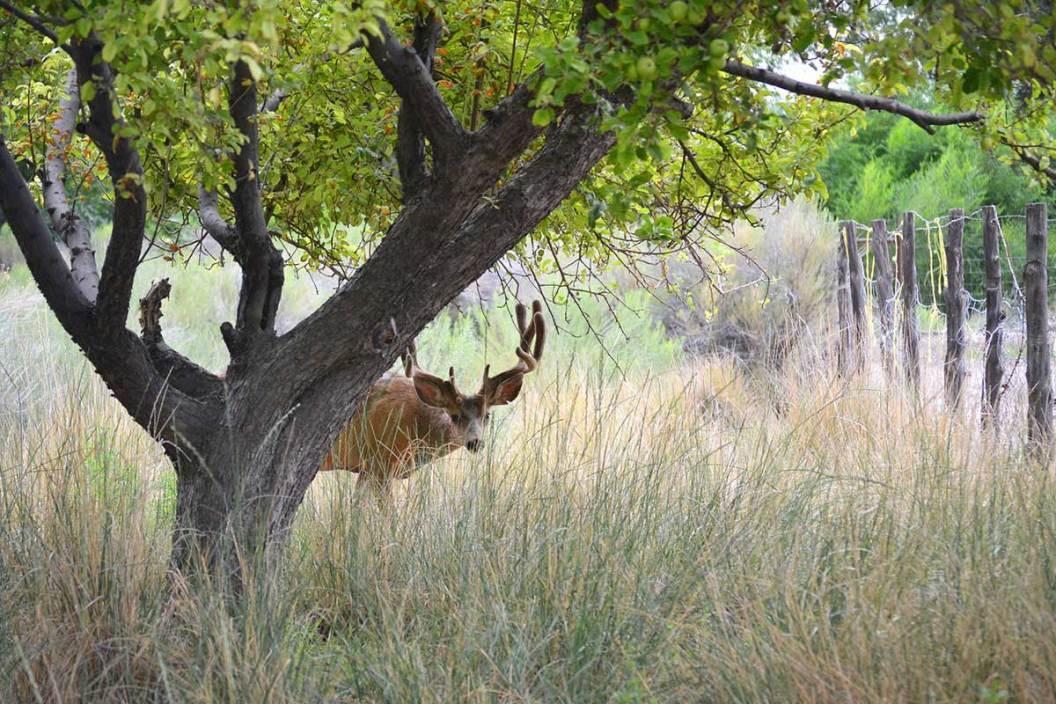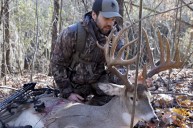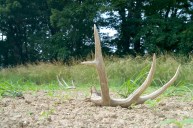Maybe you're looking to get into deer hunting, but you're immediately hit with the most common obstacle: you don't know anybody with hunting land. Or maybe you're a long time hunter that just lost your hunting lease and all hope looks lost for this upcoming season. Regardless of the reason, you might be surprised to know that opportunities for trophy deer exist outside of 200+ acre plots. In fact, some of the biggest deer could be cruising right around your neighborhood, making their home on a measly three to five acre plot of land. Gone are the days of hunters solely looking at massive parcels of land to hunt. Year after year more people are taking up what is commonly referred to as urban deer hunting.
This trend seems to have really gained traction in the past few years, and the amount of success that people are having is incredible. However, sometimes it can be difficult to find these hidden gems. And even if you do find them, getting access can be a whole other challenge altogether. We don't mean "urban" in terms of busy downtown streets, and you'll of course still need to determine the regulations related to bowhunting in even semi-populated areas. But in our term of urban hunting, we're counting any situation that includes almost all private property, but is still safe and legal to hunt. Buildings, roads, and the likelihood of some human activity all make urban hunting a particularly challenging endeavor. And I mean that in a good way.
Last year was the first hunting season that I tried my hand at urban hunting. I wanted to see what the hype was about, as well as expand my options to see if I might be missing out on some monster urban whitetail. Finding these properties and gaining permission wasn't easy, but I found some success. Here are my tips for gaining access to these unnoticed honey holes.
Contact Property Owners
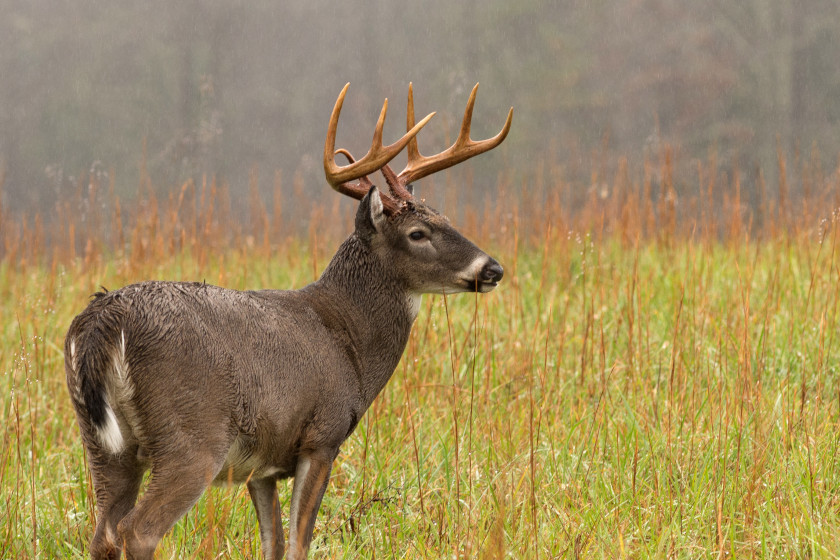
Getty Images: EEL_Tony
One of the best ways to get in contact with the property owners is through a mutual friend. Ask around your contact group and see if they know anyone with some acreage in the area. Ask their honest opinion about whether or not the property owner would consider letting you hunt. When you do contact the landowner, never mention your friend's name without first gaining their blessing. Name dropping is fine, but only when it is granted.
Cold calling or "cold knocking" doesn't work quite as often as networking through mutual friends, but it can still be effective. I have formed great friendships with property owners over the past year that I met through just blindly calling them or knocking on their door. The key is to be grateful. They are doing you a favor by letting you hunt, not the other way around. Let them know that you're appreciative.
And don't count any chickens before they hatch. Property owners won't always say yes, so learn to accept no for an answer and move on. I have been rejected far more often than not. It happens, and it should be expected. Not everyone is going to like the idea of someone hunting on their property, and that's okay. Even when you are denied access, be respectful and thank the person for their time. Who knows—maybe that person will change their mind and contact you in the future.
This is by no means necessary, but giving gifts is something I do for all of the property owners that have given me permission. I will drop off a gift basket at the end of the hunting season, with a card letting them know how appreciative I am of them letting me hunt there. This may seem small or unnecessary, but it lets them know that I am not just some guy taking advantage of their land. It tells them that I respect them, but that I also respect their property and my permission to use it. I also feel it sheds good light on the hunting community as a whole, which is never a bad thing.
Understand the Lay of the Land
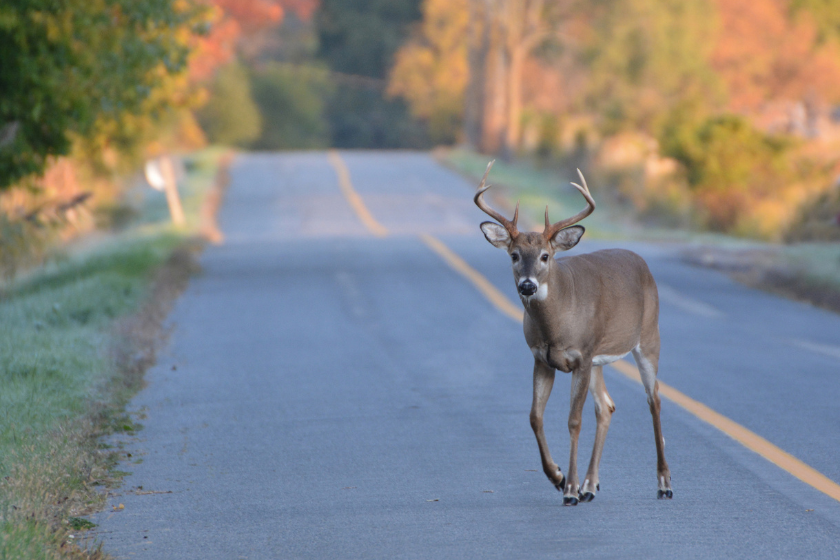
Scouting from your phone is a relatively new but revolutionary way to find prime hunting spots for urban deer hunting. Using digital topographical and satellite maps, you can gain an understanding of how the deer are moving, and what areas they are likely traveling to and from. I highly encourage anyone looking to get into urban hunting to download a scouting app. There are several great ones, such as OnX, HuntStand, and HuntWise, so make your pick and get to work.
Once you've found a good spot and gotten permission to use it, one of the best things you can look for when scouting urban hunting properties are pinch points. Finding these areas will be crucial to your success and can essentially predict where the deer will be moving towards, especially in peak rut. Land isn't quite as abundant in urban areas, so it's important to be able to tell where the deer are funneling to and from. When you find that path from one wooded area to next, that's where you need to set up.
When looking for a spot, keep in mind that urban deer won't feed on the same stuff as their wooded counterparts. If you spend your time trying to find a true ag field in urban areas, you might be looking for a very long time. Fortunately, there's still plenty of food for urban deer to eat. Instead of agriculture, these deer will be feeding on woody browse, gardens, and lawns. This might sound like a disadvantage but it can actually help narrow down your search in the long run.
Talk to the Neighbors

twildlife/Getty
The first urban property I got permission to hunt was about five acres. I was sitting in the stand one evening and it just hit me—unless I hit these deer perfectly in the heart, there is no way they're going to die on this property. What am I going to tell the neighbors?
Instead of waiting until the last minute, be proactive and go talk to the neighbors beforehand. Let them know that you have received hunting permission on the property next door and ask if it's okay to call them if your deer runs over onto their property. I always add that I am happy to share the meat with them as a thank you. Odds are they will be happy that you asked and showed respect, and sometimes this can even lead to getting permission for their property, although you should never expect this.
Urban deer hunting can be a great and unique experience that I feel all hunters should try. The challenge of hunting on small parcels, finding areas to hunt, and gaining access is all a part of the journey. Make sure to check local regulations for the areas you are pursuing, and always remember to show respect to the landowners, regardless of whether they say yes or no. Good luck!
